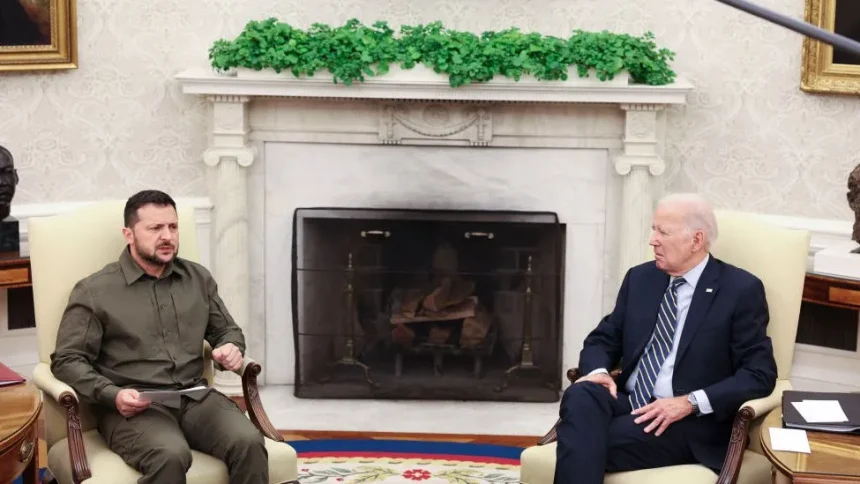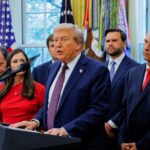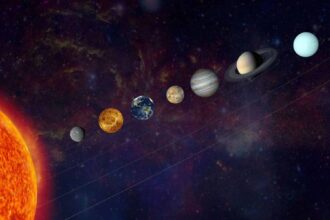Ukraine’s President Volodymyr Zelensky is traveling to Washington, DC, to try to save a threatened US defense deal worth billions of dollars for Kyiv.
The aid has become entangled in domestic, political politics in the United States.
It will be Mr Zelensky’s third trip to the United States since Russia’s invasion of Ukraine in February 2022.
The European Union will also decide whether to launch formal talks on Ukraine’s admission to the bloc this week.
Hungarian Prime Minister Viktor Orban has indicated his opposition to the plan and has the authority to veto such a decision.
Mr. Orban and Mr. Zelensky appeared to have an intense conversation when they met on Sunday at Argentina’s new president’s inauguration. The specifics of their conversation have been withheld.
On Monday, the Ukrainian president will arrive in Washington. He will address the Senate on Tuesday morning after meeting with US President Joe Biden and Republican House Speaker Mike Johnson.
In a statement issued on Sunday, the White House stated that Mr Zelensky’s visit was intended to “underscore the United States’ unwavering commitment to supporting the people of Ukraine as they defend themselves against Russia’s brutal invasion.”
The US military aid plan, totaling $60 billion (£47.9 billion; €55 billion), is now stuck in Congress, with Republicans arguing that more money should be spent on domestic security along the US-Mexico border.
A proposal that contained the funding was blocked in a Senate vote last week.
Mr. Biden has urged Congress to approve the funds. In an impassioned televised address last Wednesday, he said the package couldn’t wait and warned that victory over Ukraine would not be the end of Russia.
Though Ukraine repelled Russia’s initial onslaught, its much-touted counter-offensive this year has slowed, and several of the Western nations that have stepped up to help it militarily have shown symptoms of exhaustion.
Following the Senate vote, Ukrainian First Lady Olena Zelenska told the BBC’s Sunday with Laura Kuenssberg that Ukrainians would be “in mortal danger” if Western countries did not continue to help them.
“We genuinely need your assistance. “In a nutshell, we can’t get tired of this situation because we’ll die if we do,” she explained.
“And if the world gets tired, they will simply let us die.”















